
NOT Predicting The Oscars 2019
In order not to lose, or rather, in order to not win, but to not win with integrity, this year Dr. Garth Twa is choosing winners who aren’t even nominated.
It’s Oscar time again, that annual humiliation of me getting it entirely wrong. I always lose this bingo game, whether I choose from my heart or from my spleen, it doesn’t matter. So I’ve decided to take a different strategy; in order not to lose, or rather, in order to not win, but to not win with integrity, I’m choosing winners who aren’t even nominated.
Best Actress
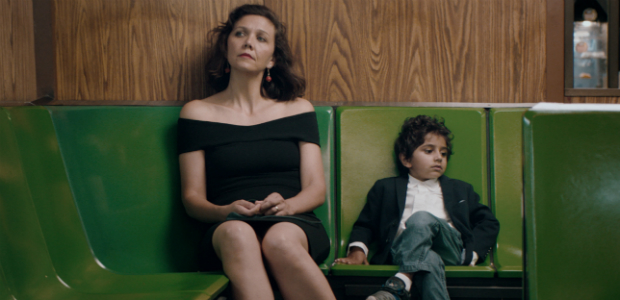
Who should win? Glenn Close. For The World According To Garp (George Roy Hill). In 1983. She should have won it then and gotten it over with. Just like Leonardo DiCaprio should’ve won for What’s Eating Gilbert Grape? (Lasse Hallstrom, 1993), when he deserved it, and then we wouldn’t have been subjected to the decades-long, agonized ordeal of getting to his thinly disguised honorary Oscar for The Revenant (Alejandro Inarritu, 2015), which was good, but not as deserving as Matt Damon, who, likewise, was stranded in a harsh landscape in The Martian (Ridley Scott), only his environment was even more unforgiving because at least DiCaprio had oxygen. And at least Damon had moments where he didn’t have to scowl. Scorsese should have won for Taxi Driver in 1976, at the very least, but definitely for Raging Bull in 1980. Instead, we all had to slog, despondently clucking our tongues, until finally he won for The Departed in 2007. The Departed was good in a standard Martin Scorsese kind of way, but not, you know, historic like Raging Bull, or even as sublime as The King of Comedy in 1982, or as delicious and dark as After Hours in 1985, or as solidly high-proof Scorsese as Goodfellas in 1990. It’s like payday loans, the debt keeps compounding into the future. People don’t win when they deserve, then it becomes an issue. And this year, Glenn Close is due. But what about Olivia Coleman, who’s year it should be? Her performance in The Favourite (Yorgos Lanthimos) is an ideal fit of actress in supreme fruition and brilliantly conceived role. It is Coleman’s magnum opus. But now she’ll have to wait, and win it in 20 years when it should be someone else’s year. Nicole Kidman could easily get the award for Most Acting. She did a lot of acting this year. There was, of course, Destroyer (Karyn Kusama), and Aquaman (James Wan), and How to Talk to Girls at Parties (John Cameron Mitchell)(which came out this year)(sort of), and Boy Erased (Joel Edgerton). But the award for Most Acting In A Single Movie would have to be Nicolas Cage, who did a lot of acting in Mandy (Panos Cosmatos). In one scene alone, in a bathroom, in his underpants, he acted more than all the nominated actors did in all their movies combined as he gurned and thrashed about in his underpants in one continuous take long shot, drinking out of a bottle of vodka like it was water that he forgot to keep pretending was supposed to be vodka. As one’s mind wanders during this bountiful display of acting, as it tends to do, because there’s plenty of time to have one’s own thoughts and not miss anything, one recalls how Nicolas Cage is actually an Oscar winner, for playing a drunk, in Leaving Las Vegas (Mike Figgis, 1995). And one is given the chance to ponder—it is a long scene, with lots and lots of acting in it—how very different the world is now.
Where was I? Oh, yes. My choice for Best Actress is a tie! It’s Maggie Gyllenhaal for The Kindergarten Teacher (Sara Colangelo) and Sakura Ando for Shoplifters (Hirokazu Kore-eda), both women with good intentions coupled with toweringly stupid actions in a bumper year for films about child endangerment. Gyllenhaal plays a woman of compassion but who is punished with an intelligence that allows her to recognize her own mediocrity. As she herself is on the verge of being erased she is drawn to the talent in one of her young students and strives, with an impassive stare that could shatter concrete, to do everything to save him from her own barren fate. Skillfully the film never goes where it seems it is headed, and Gyllenhaal’s series of, at first, spontaneously questionable decisions escalate into calculated criminal desperation. And the tragedy is that she is right. Everything she does is right, even when it’s wrong.
Sakura Ando, in the Palme D’Or winning Shoplifters, plays an ersatz mother figure in a gleefully amoral clan whose bonds are perhaps less familial than they seem. Kore-eda crowds his frame with clutter and squalor, the “family” living in a filthy Tokyo slum, but living joyfully. The adults work when they can, in peep shows or factories, or scam the pension system, and the children are sent out shoplifting with a list. Ando’s performance of pragmatic compassion, with the reflex to laughter, seems almost optimistic, even joyful, and is at odds with the tenuous existence of dirt and larceny. Who cares if it’s illegal to steal children, when, really, everyone is much happier?
And then, of course, there is that other masterpiece of child endangerment, Capernaum (Nadine Labaki), another Cannes winner this year. With so much child endangerment to choose from, who can choose? So I choose them all!
Best Picture
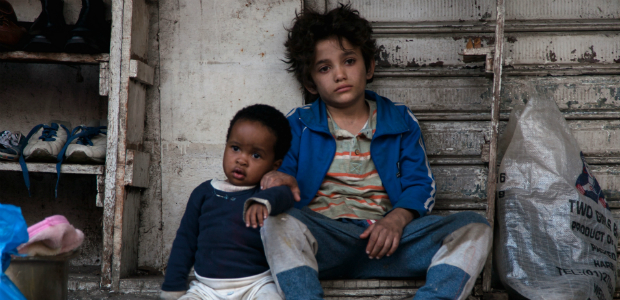
A three way tie! Shoplifters, Capernaum, and The Kindergarten Teacher! (Although both Capernaum and Shoplifters have been nominated in the Foreign Language, they haven’t been nominated for Best Picture, so I still cannot win). Capernaum is a film about a boy, Zain Al Rafeea, suing his parents for giving him life, for the crime of negligence in bringing him into a world as shitty as the Lebanese slums that they bring him into. He runs away, preferring to be homeless, until he is given refuge in a shanty by Rahil (Yordanos Shiferaw), and Eritrean refugee even worse off than he is. Zain spends a great deal of time fending off child traffickers and abusers, hauling around Rahil’s son, a toddler, when she is detained, and looking for food. Capernaum is bare and raw, with an honest, intimate central performance that would be astonishing for an established performer, let alone a 12-year-old first-time actor.
Oops. I seem to have used up all my room already. So I’ll be quick.
Best Director
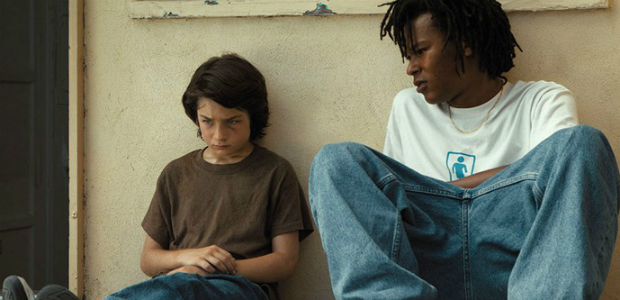
It would be the decent thing to do (and if there are any other thinly disguised honorary Oscars to be handed out, this is the time) to give it to Spike Lee. It’s way past due. Alfonso Cuaron should perhaps get this, too, because Roma was his masterwork, easily his best film since Y Tu Mama Tambien (2001). It’s like the Mexican New Wave revisited, his first Spanish language film since he and Inarritu hit it big and went for Harry Potter and Brad Pitt (respectively). Then there’s Yorgos Lanthimos, and though I get butterflies of love in my stomach thinking about Lanthimos actually being nominated (one of the true world-class auteurs we have today, like when once we had Fellini and Bergman and Truffaut all working at the same time), and even though The Favourite wasn’t as singular and virtuosic as Dogtooth (2009), or The Lobster (2015), or The Killing of a Sacred Deer (2017), it was still Lanthimos. But I have to stick to my mandate, so my choice for Best Director is Jonah Hill! For Mid90s. It was his first film as director, and the first film for most of the cast of really young actors who Hill directed to subtle performances of such candor, without artifice or pretence, that they seemed dermabrasioned to unalloyed authenticity. Shot very low budget and on 16 mm film, there was nothing to hide behind.
Supporting actor
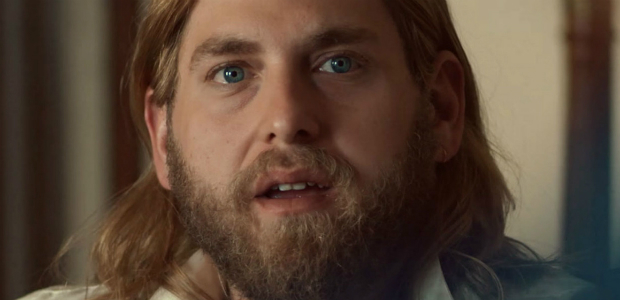
Jonah Hill! Again! For his role as Donny, the gay AA group leader in Don’t Worry, He Won’t Get Far on Foot (Gus Van Sant). Hill was nearly unrecognizable—a different light shone out from his eyes. This, more than even The Wolf of Wall Street (Martin Scorsese, 2013), showed his depth of talent as an actor. He had an unshowy power in the role, a solidity of soul, that was quiet, riveting, and generous.
Best Supporting Actress
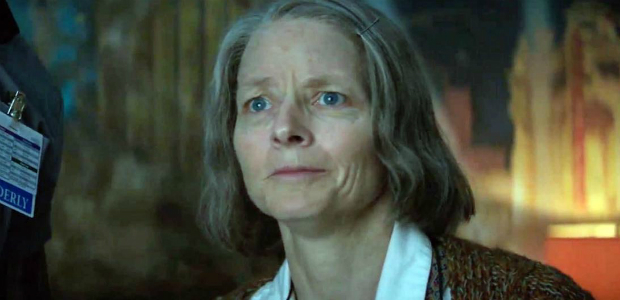
Should go to Rachel Weisz and Emma Stone for The Favourite, but my choice is Jodie Foster, for Hotel Artemis (Drew Pearce). Sure, she might have had more of a leading role, or major part of an ensemble, but since I’m making up the rules, I go for Jodie. In the past I have found ingress into Foster’s performances, at times, arduous. In my view, she’s best when she plays flinty. She’s best when she’s in pain. Clarice Starling in Silence of the Lambs (Jonathan Demme, 1991), for example, was extremely pained and troubled. And flinty. And she is extraordinary, archly flinty here. As the nurse, or gatekeeper, of a post-apocalyptic hospital, or brothel, or jail (it’s hard to tell which because the production design is so sumptuously fetid) she hobbles, and winces, and growls, and there is something so dignified and sincere and heartfelt about it; it could easily have been just a campy role. But Foster humanizes it, and is the magnetic center of this thick, glorious, mossy failure.
Best Actor
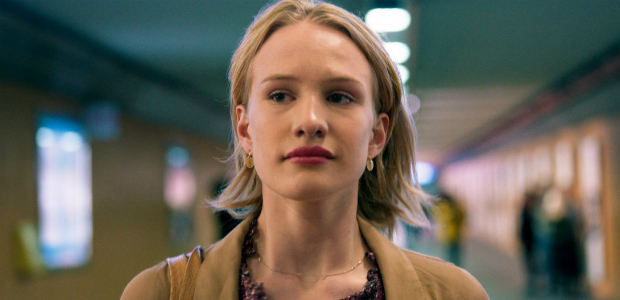
Victor Polster in Girl (Lukas Dhont) plays Lara in a brave and naked performance. Not only did the first-time actor have to convincingly capture being a girl trapped in a boy, he also had to dance en pointe and perform in ballet rehearsals that seemed physically unbelievable. But they were to be believed; Polster, a student in the Royal Ballet School Antwerp had to unlearn how to dance like a boy and relearn how to dance like a girl. And act at the same time. The film magnified the tiny, tiny inflections and the towering humiliations in excruciating intimacy, and Polster accomplished this with every fibre of his being.
Best Documentary
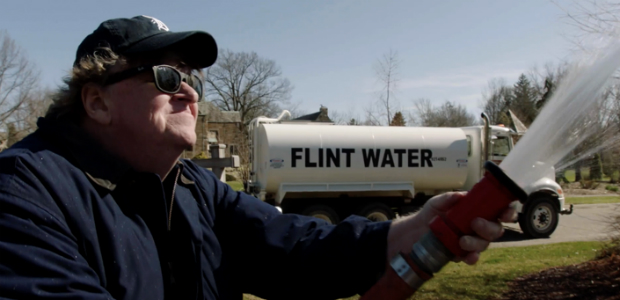
The mislaid Fahrenheit 11/9! What happened to it? Where’d it go? There’s a reason people, often in generations, go to the same church. They know the hymns. They like the hymns. And this is the same thing with people going to a Michael Moore movie, and Fahrenheit 11/9 is a full-on revival meeting. Moore gives us stunts, as we have come to expect—he pulls up to Rick Snyder’s (the nefarious governor of Michigan) house with a truck full of Flint’s toxic water and sprays his lawn—but as gleefully polemical as he is in ruthlessly excoriating Trump, he’s got enough vitriol to spread around to all parties. He calls out Obama for a water stunt of his own (when Obama faked drinking the Flint water himself) and Bill Clinton for all of his anti-progressive sins. But Trump is who we are paying to see shredded. Comparisons to Nazis always seem hysterical or at least hyperbolic, and are offensive in their reductiveness. Unless, of course, they are apt. Moore credits a montage of contemporary newreels from when Hitler was rising to power, and the chillingly familiar refrains of “he’ll never do what he says when he’s elected; he’ll never keep his campaign promises, it’s all just bluster in order to get votes.” But that wasn’t the case for Hitler. And it’s not the case with Trump. Moore is convincing here—the playbook of Trump, the social tactics and fomenting fascism, are alarmingly similar; to see, back to back, the vicious racism in the streets of Germany during the Reich next to the new and even more vicious racism on the streets and in the public transit in Trump’s America is alarming. But Moore isn’t just here to scare us, or lead us in hand-wringing; his energy peaks when he strikes an optimistic note, when he focuses on the renewed energy of women fighting back, of students not putting up with yet more massacres. It’s time to take control. Me too. Never again. Praise be. Can I get I amen?






COMMENTS